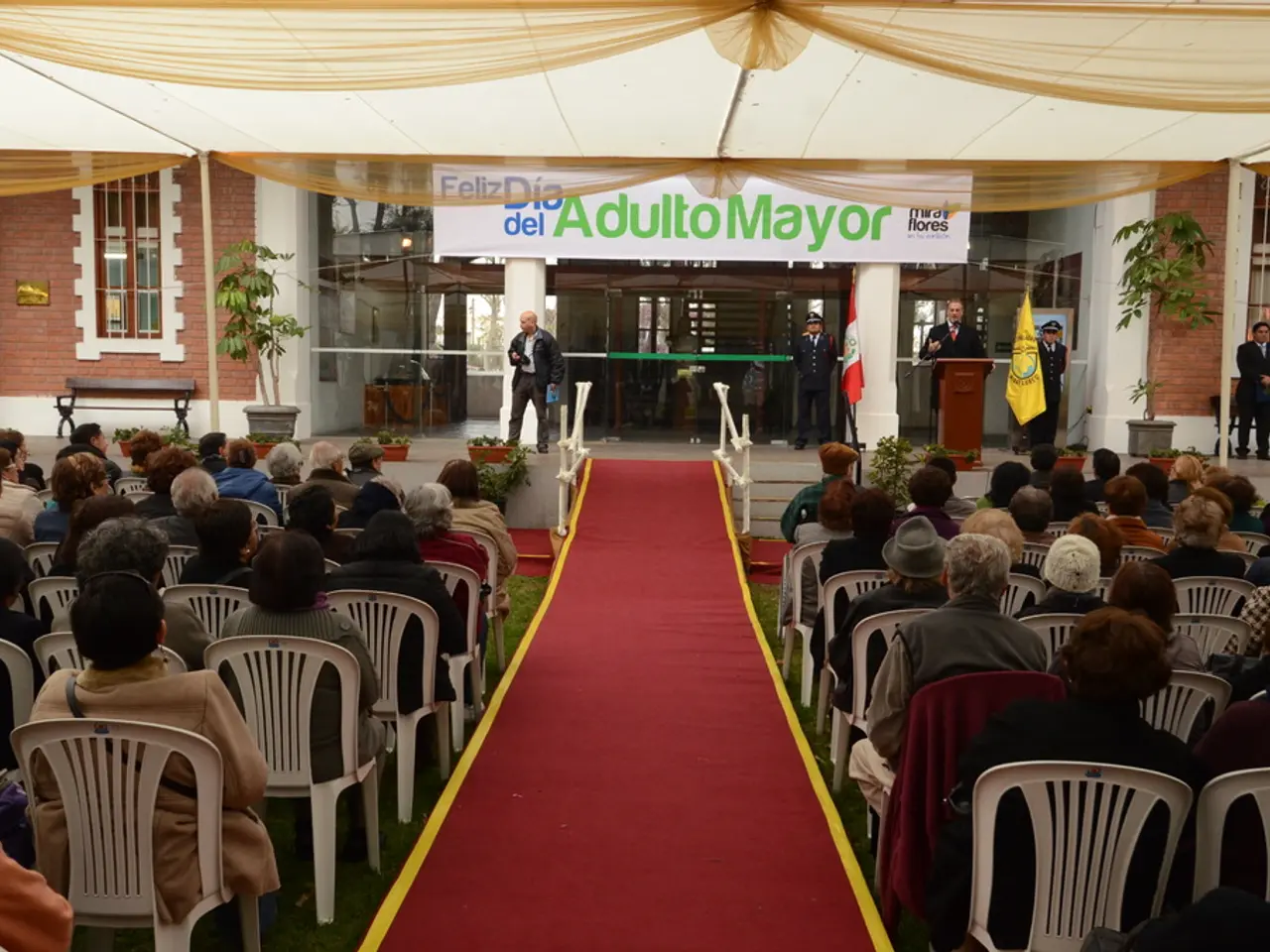European Parliament Prepares to Cast Vote on Confidence in Von der Leyen's Leadership - Parliament in Europe endorses Commission's plan
The European Parliament is set to hold a no-confidence vote against Commission President Ursula von der Leyen on July 10, 2025. The motion, spearheaded by Romanian hard-right MEP Gheorghe Piperea, has gathered significant support from right-wing and far-right Members of the European Parliament (MEPs) across several political groups.
The reasons for the no-confidence motion primarily stem from accusations of von der Leyen violating EU transparency standards, specifically her refusal to disclose text messages exchanged with Pfizer CEO Albert Bourla during critical negotiations over coronavirus vaccine procurement. This secret communication has sparked what is being referred to as the 'Pfizergate' scandal, raising questions about transparency and potential undue influence by Pfizer.
Beyond the 'Pfizergate' issue, von der Leyen is also criticized for allegedly bypassing the European Parliament and centralizing power within the European Commission, which some MEPs argue undermines democratic oversight and institutional balance within the EU.
The motion is supported by MEPs from the European Conservatives and Reformists (ECR), the Patriots, and the Europe of Sovereign Nations (ESN) groups, as well as some non-affiliated members. Notably, Italy's ruling party, Fratelli d’Italia, led by Giorgia Meloni, is part of the ECR, but the group’s official stance is not unified in this motion.
If the motion passes, the entire European Commission would be required to resign. However, given the current political balances, the no-confidence vote is very likely to fail, as it would require a two-thirds majority of the 720-seat Parliament to pass. Yet, it nonetheless poses a significant political embarrassment for von der Leyen and highlights growing dissent within the Parliament.
The motion's significance goes beyond its immediate prospects; it could set a precedent reminiscent of the 1990s when a censure motion led to the voluntary resignation of the European Commission under Jacques Santer, thereby opening a "Pandora’s box" for future challenges to Commission presidents and executive accountability.
The vote and its surrounding controversy underscore rising political tensions around transparency, accountability, and the relationship between the European Commission and Parliament, potentially impacting von der Leyen’s ability to govern and the EU’s internal cohesion moving forward.
It is important to note that the EU funding program for defense spending and alleged EU interference in the Romanian presidential election are also points of contention leading to the no-confidence motion. The ECR group, which includes parties such as the far-right Fratelli d'Italia (Italy), Law and Justice (Poland), far-right party of Eric Zemmour (France), and Vox (Spain), has distanced itself from the no-confidence motion, stating it was not an initiative of their group.
In summary, the no-confidence vote against Ursula von der Leyen focuses on issues of transparency related to secret communications with Pfizer during the pandemic and broader concerns about executive overreach, driven primarily by right-wing parliamentary groups. The upcoming July 10 vote is set to be a critical political moment, though not likely to unseat her. However, it heightens scrutiny and may influence EU political dynamics in the near term.
The Commission has also taken a number of policy-and-legislation initiatives to improve the quality of information and communication services, aiming to address the transparency issues raised in the general news, such as the 'Pfizergate' scandal and the accusations against Ursula von der Leyen. This political controversy surrounding von der Leyen's leadership and her relationship with the European Parliament is a significant development that could have far-reaching implications for the future of the EU, particularly in terms of executive accountability and the balance of power between the Commission and Parliament.








